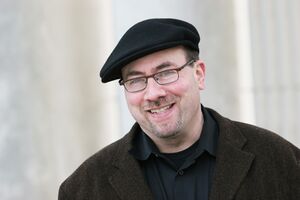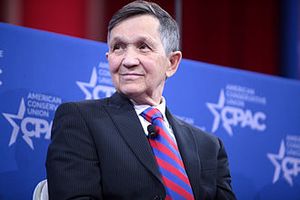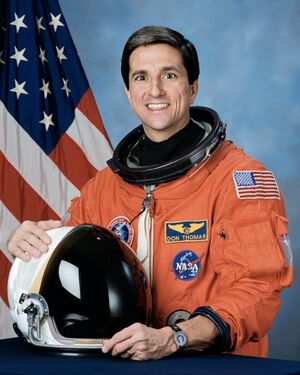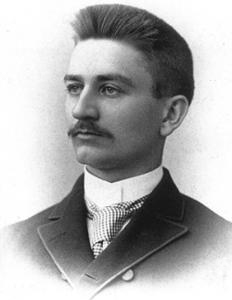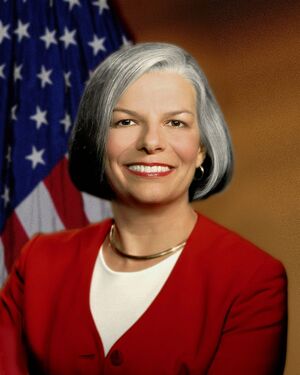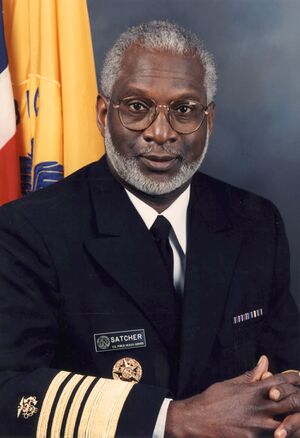Difference between revisions of "Case Western Reserve University"
(unstub) |
m (→Notable People: cut section) |
||
| Line 23: | Line 23: | ||
==Notable People== | ==Notable People== | ||
This is a list of notable individuals associated with [[Case Western Reserve University]], including students, alumni, and faculty. | This is a list of notable individuals associated with [[Case Western Reserve University]], including students, alumni, and faculty. | ||
| − | |||
| − | |||
| − | |||
| − | |||
| − | |||
| − | |||
| − | |||
| − | |||
| − | |||
| − | |||
| − | |||
| − | |||
| − | |||
| − | |||
| − | |||
| − | |||
| − | |||
| − | |||
| − | |||
| − | |||
| − | |||
| − | |||
| − | |||
| − | |||
===Business and philanthropy=== | ===Business and philanthropy=== | ||
Latest revision as of 11:44, 4 April 2021
(University) | |
|---|---|
 | |
| Motto | Think Beyond the Possible |
| Formation | 1826 |
| Headquarters | Cleveland, Ohio, USA |
| Type | Private University |
| Other name | Spartans |
| Important research university with significant government ties | |
Case Western Reserve University (CWRU) is a private research university in Cleveland, Ohio. It was created in 1967 through the federation of two longstanding contiguous institutions: Western Reserve University, founded in 1826 and named for its location in the Connecticut Western Reserve, and Case Institute of Technology, founded in 1880 through the endowment of Leonard Case, Jr. Time magazine described the merger as the creation of "Cleveland's Big-Leaguer" university.[1]
The campus is approximately 5 miles (8 km) east of Downtown Cleveland in the neighborhood known as University Circle, an area encompassing 550 acres (220 ha) containing a concentration of educational, medical, and cultural institutions.[2] Case Western Reserve has a number of programs taught in conjunction with University Circle institutions, including the Cleveland Clinic, the University Hospitals of Cleveland, the Louis Stokes Cleveland Department of Veteran's Affairs Medical Center, Cleveland Institute of Music, the Cleveland Hearing & Speech Center, the Cleveland Museum of Art, the Cleveland Institute of Art, the Cleveland Museum of Natural History, and the Cleveland Play House. Severance Hall, home of the Cleveland Orchestra, is on the Case Western Reserve campus.
Case Western Reserve includes the medical school, business school, dental school, law school, Frances Payne Bolton School of Nursing, Department of Biomedical Engineering and its biomedical teaching and research capabilities. Case Western Reserve is a member of the Association of American Universities.[3] Case is noted (among other fields) for research in electrochemistry and electrochemical engineering.
The Michelson–Morley interferometer experiment was conducted in 1887 in the basement of a campus dormitory by Albert A. Michelson of Case School of Applied Science and Edward W. Morley of Western Reserve University. Michelson became the first American to win a Nobel Prize in science.[4] Since then, seventeen Nobel laureates have been affiliated with Case Western Reserve or one of its two predecessors.[5]
Case Western Reserve was one of the earliest universities connected to the ARPANET, the military predecessor to the Internet. ARPANET went online in 1969; Case Western Reserve was connected in January, 1971.[6]Case Western Reserve graduate Ken Biba published the Biba Integrity Model in 1977 and served on the ARPA Working Group that developed the Transmission Control Protocol (TCP) used on the Internet.
Contents
Notable People
This is a list of notable individuals associated with Case Western Reserve University, including students, alumni, and faculty.
Business and philanthropy
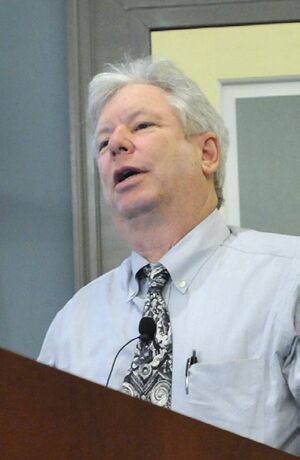
- William F. Baker – president and CEO of public television's flagship station Thirteen/WNET in New York
- Robert B. Barr – co-founder and co-CEO of investment bank Lincoln International
- Tim Besse – co-founder and CXO of Glassdoor
- Ou Chin-der – former deputy mayor of Taipei, Taiwan; current chairman and CEO of the Taiwan High Speed Rail Corporation
- William Daroff – vice president for public policy at the Jewish Federations of North America; member of the U.S. Commission for the Preservation of America's Heritage Abroad
- Rohit Gupta - Founder & CEO of Palerra, acquired by Oracle Corporation
- Bob Herbold – executive vice president at Microsoft
- Pete Koomen – co-founder and CTO of Optimizely
- Tshilidzi Marwala – academic, businessman and community leader
- Barry Meyer – chairman and former CEO of Warner Bros
- Allen J. Mistysyn – CFO of Sherwin-Williams
- John Neff – noted value investor who led Vanguard's Windsor Fund, the largest and highest returning mutual fund of the 1980s
- Craig Newmark – founder of Craigslist, tech billionaire, philanthropist
- Philip Orbanes – former VP with Parker Brothers; founding partner and President of Winning Moves
- Arthur L. Parker – founder of Parker Hannifin
- Richard Thaler (BA '67) – Nobel laureate, father of behavioral finance, and behavioral economics pioneer
- Peter Tippett – inventor of Norton (Symantec) Anti-Virus and CTO of CyberTrust[7]
- Tom Tribone – founder and CEO of Guggenheim Global Infrastructure Company
- Donald E. Washkewicz – former CEO of Parker Hannifin
- Edward Porter Williams – Co-founder of Sherwin-Williams
- Mark Weinberger (JD/MBA '87) - CEO and Chairman of Ernst & Young
Education
- Edna Allyn, first librarian of the Hawaii State Library
- George A. Bowman – youngest president in the history of Kent State University
- Clara Breed, librarian, known for her "Dear Miss Breed" correspondence with children in Japanese American internment camps during World War II
- Emile B. De Sauzé, language educator known for developing the conversational method of learning a language
- Susan Helper, Frank Tracy Carlton Professor of Economics at the Weatherhead School of Management
- Lena Beatrice Morton, literary scholar, head of the humanities division at Texas College; earned her PhD from Case Western in 1947
Government and military
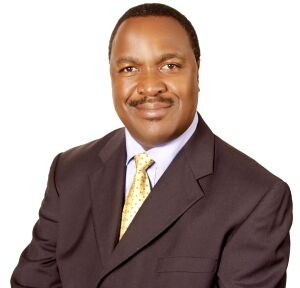
- John E. Barnes, Jr. - member of Ohio House of Representatives
- Janet Bewley - member of the Wisconsin Legislature
- Zdravka Bušić - member of the European Parliament
- John Cairncross - Soviet spy and member of the Cambridge Five
- Thomas J. Carran (1841-1894) - Ohio State Senator[8]
- François-Philippe Champagne - Canadian Member of Parliament for Saint-Maurice—Champlain.
- Schive Chi - Governor of Fujian Province and Minister without Portfolio, Republic of China (Taiwan)
- Victor Ciorbea – Prime Minister of Romania (1996–1998)
- Bruce Cole – 8th Chairman of the National Endowment for the Humanities
- John Charles Cutler – Acting Chief of the venereal disease program in the United States Public Health Service and head of the Guatemala and the Tuskegee syphilis experiments.
- Benjamin O. Davis, Jr. – first African-American to receive star in US Air Force; awarded Distinguished Flying Cross in 1943; Assistant Secretary of Transportation under Richard Nixon
- Lincoln Díaz-Balart – U.S. Representative
- Alene B. Duerk – first female Rear Admiral in the United States Navy
- James A. Garfield – served on the University Board of Trustees
- T. Keith Glennan – Case Institute of Technology President, first NASA Administrator
- Subir Gokarn (Ph.D.) – Deputy Governor of the Reserve Bank of India
- Paul Hackett – Iraq War veteran and former Congressional candidate
- Rutherford B. Hayes – 19th President of the United States of America, served on the University Board of Trustees
- John Hutchins - former U.S. Representative
- Stephanie Tubbs Jones – former U.S. Representative
- Ron Klein - U.S. Representative
- Dennis Kucinich – former U.S. Representative
- Clarence K. Lam, Maryland State Senator[9]
- James Thomas Lynn - United States Secretary of Housing and Urban Development under Richard Nixon; Director of the Office of Management and Budget under Gerald Ford
- Josh Mandel (J.D.) – Ohio State Treasurer
- Nicole Nason (J.D.) – Administrator of the Federal Highway Administration
- Alfredo Palacio – President of Ecuador, completed medical residency at Case
- Raymond Stanton Patton (Ph.B.), rear admiral and first flag officer of the United States Coast and Geodetic Survey Corps
- Trista Piccola - former Director of the Rhode Island Department of Children, Youth & Families
- Paul A. Russo - Ambassador of the United States to Barbados, Dominica, St Lucia, Antigua, St. Vincent, and St. Christopher-Nevis-Anguilla
- David Satcher – 16th Surgeon General of the United States
- Milton Shapp – Governor of Pennsylvania and 1976 Democratic presidential candidate
- Louis Stokes – former U.S. Representative
- Don Thomas – former NASA astronaut
- Elioda Tumwesigye – Member of Parliament Sheema North and Cabinet Minister of Science, Technology and Innovation Republic of Uganda
- Michael R. Turner – U.S. Representative
- William H. Upson - former U.S. Representative
- Andrew R. Wheeler - Deputy Administrator (and Acting Administrator) of the United States Environmental Protection Agency
- Milton A. Wolf – former U.S. Ambassador to Austria
History
- Sara Alpern - professor of women's history at Texas A&M University (B.A., 1964)
- Melvin Kranzberg - professor of history (1952-1971)
- James Alexander Robertson - academic historian, archivist, and bibliographer (Ph.D., 1896)
- Ted Steinberg – two-time Pulitzer Prize nominee (2000 nonfiction and 2002 history)
Law
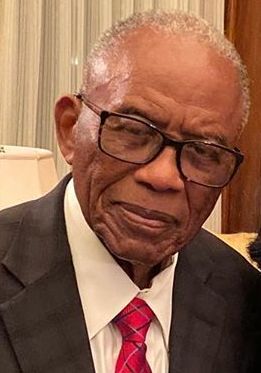
- John Hessin Clarke, undergraduate class of 1877, Justice of the Supreme Court of the United States
- Fred Gray, attorney to the civil rights movement of the 1950s and 60s, later President of the National Bar Association and first African-American President of the Alabama State Bar
- Edmund A. Sargus, Jr., U.S. District Court Judge
- James Sokolove, undergraduate class of 1966, pioneer in legal television advertising; philanthropist
Science, technology, and medicine
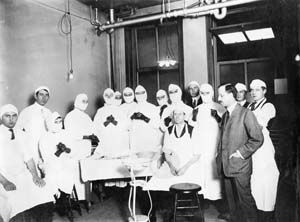
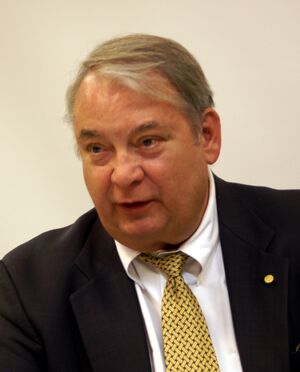
- Peter B. Armentrout – distinguished chemistry professor, University of Utah
- Roger Bacon – inventor of carbon fiber
- Hans Baumann – inventor and engineer[10]
- Paul Berg – winner of the 1980 Nobel Prize in Chemistry, for biochemical characterization of recombinant DNA
- Paul Buchheit – 23rd employee of Google and creator of Gmail
- Neil W. Chamberlain – economist and industrial relations scholar (A.B., 1937; M.A., 1939)
- Philippe G. Ciarlet – mathematician known for work on finite element method; received his Ph.D. from the Case Institute of Technology 1966 and was awarded the Légion d'honneur in 1999
- Conor P. Delaney – colorectal surgeon known for laparoscopy and developing enhanced recovery pathways
- Herbert Henry Dow – founder of Dow Chemical
- Slayton A. Evans, Jr. – research chemist and professor
- H. Jack Geiger – founding member and past president of Physicians for Social Responsibility and Physicians for Human Rights
- Julie Gerberding – first woman director of the Centers for Disease Control and Prevention
- Alfred G. Gilman – co-winner of the 1994 Nobel Prize in Physiology or Medicine, for co-discovery of G proteins
- Donald A. Glaser – winner of the 1960 Nobel Prize in Physics, for invention of the bubble chamber
- Corneille Heymans – winner of the 1938 Nobel Prize in Physiology or Medicine for work on carotid sinus reflex
- Siegfried S. Hecker – director of Los Alamos National Laboratory (1986–1997)
- Samuel Hibben – pioneer in blacklight technology; designed the lighting displays for the Statue of Liberty and other national monuments
- Bambang Hidayat - astronomer, former Vice-President of the International Astronomical Union
- George H. Hitchings – co-winner of the 1988 Nobel Prize in Physiology or Medicine, for research leading to development of drugs to treat leukemia, organ transplant rejection, gout, herpes virus, and AIDS-related bacterial and pulmonary infections
- Robert W. Kearns – the inventor of the intermittent windshield wiper systems used on most automobiles from 1969 to the present. Kearns won one of the best-known patent infringement cases against a major corporation
- Donald Knuth – computer scientist and winner of the Turing Award (1974)[11]
- Lawrence M. Krauss – physicist in the field of dark energy; bestselling author (The Physics of Star Trek)
- Polykarp Kusch – winner of the 1955 Nobel Prize in Physics, for determining the magnetic moment of the electron
- George Trumbull Ladd (1842–1921) – philosopher, educator, and psychologist; first foreigner to receive the Second (conferred in 1907) and Third (conferred in 1899) Orders of the Rising Sun
- Paul C. Lauterbur – co-winner of the 2003 Nobel Prize in Physiology or Medicine, for discoveries leading to creation of Magnetic Resonance Imaging
- Matthew N. Levy – cardiac physiologist and textbook author
- John J.R. Macleod – co-winner of the 1923 Nobel Prize in Physiology or Medicine, for discovery of insulin
- Sidney Wilcox McCuskey – astronomer noted for his work on the Milky Way galaxy
- Drew Meyer- John Teagle Professorial Fellow in Chemistry
- Albert A. Michelson – winner of the 1907 Nobel Prize in Physics, for disproving existence of "ether"; first American to receive a Nobel Prize
- Edward Morley – performed interferometry experiment with Michelson
- Ferid Murad – co-winner of the 1998 Nobel Prize in Physiology or Medicine, for role in the discovery of nitric oxide in cardiovascular signaling
- George A. Olah – winner of the 1994 Nobel Prize in Chemistry, for contributions to carbocation chemistry
- Amit Patel – stem cell surgeon who demonstrated stem cell transplantation can treat congestive heart failure
- Raymond Stanton Patton (Ph.B.), engineer, rear admiral and first flag officer of the United States Coast and Geodetic Survey Corps and second Director of the United States Coast and Geodetic Survey (1929-1937)
- M. Scott Peck – psychiatrist and author of The Road Less Traveled
- David Pedlar — Director of Research at the National Headquarters of Veterans Affairs Canada
- James Polshek – architect; designed William J. Clinton Presidential Library
- Edward C. Prescott – co-winner of the 2004 Nobel Prize in Economic Sciences, for theory on business cycles and economic policies
- Charles Burleigh Purvis - (1865) leading physician at Howard University and the Freedmen's Hospital
- Frederick Reines – co-winner of the 1995 Nobel Prize in Physics, for the detection of the neutrino
- Barry Richmond – developer of the iThink simulation environment
- Frederick C. Robbins – co-winner of the 1954 Nobel Prize in Physiology or Medicine, for work on polio virus, which led to development of polio vaccines; past president of the Institute of Medicine of the National Academy of Sciences
- M. Frank Rudy – inventor of the Nike air sole
- John Ruhl – physicist currently studying cosmic microwave background radiation
- David Satcher – U.S. Surgeon General under President Clinton; first African-American director of the Centers for Disease Control and Prevention
- Terry Sejnowski - pioneer in the field of neural networks and computational neuroscience; one of only ten living scientists to have been elected to all three national academies (IOM, NAS and NAE)
- Jesse Leonard Steinfeld – U.S. Surgeon General (1969-1973), noted for achieving widespread fluoridation of water, requiring prescription drugs to be effective, and strengthening the Surgeon General's warning on cigarettes
- Earl W. Sutherland – winner of 1971 Nobel Prize in Physiology or Medicine, for establishing identity and importance of cyclic AMP in regulation of cell metabolism
- Lars Georg Svensson - instrumental in the development of minimally invasive keyhole surgery and leader in aortic valve surgery
- Peter Tippett – developer of the first anti-virus software, "Vaccine" (later sold and renamed Norton AntiVirus)
Alumni on Wikispooks
| Person | Born | Died | Nationality | Summary | Description |
|---|---|---|---|---|---|
| François-Philippe Champagne | 25 June 1970 | Canada | Politician Lawyer Businessperson | Canadian Bilderberger politician, lawyer | |
| Michael Cherkasky | Businessperson | ||||
| Lincoln Díaz-Balart | 13 August 1954 | Lawyer | Plays a prominent role in the Cuban-American lobby. Son of Rafael Díaz-Balart. | ||
| Julie Gerberding | 22 August 1955 | US | Civil servant | Approved Merck vaccine Gardasil as CDC Director, salary $172,000. Then made around $25 million from stock sales when working for Merck. | |
| Martin Gruenberg | 1953 | Civil servant | Chairman of the U.S. Federal Deposit Insurance Corporation | ||
| Mark Hanna | 24 September 1837 | 15 February 1904 | US | Politician Deep politician | American businessman and Republican party kingmaker |
| Dennis Kucinich | 8 October 1946 | Politician | |||
| Nobuo Tanaka | 3 March 1950 | Japan | Academic Bureaucracy | Executive Director of the International Energy Agency |
References
- ↑ https://web.archive.org/web/20190516190415/http://content.time.com/time/magazine/article/0,9171,841260,00.html
- ↑ https://web.archive.org/web/20171203224537/http://www.cityvisitor.com/Cleveland/things-to-know/00000057%7Carchive-date=December 3, 2017
- ↑ https://www.webcitation.org/69oUMM90E?url=http://www.aau.edu/about/article.aspx?id=5476%7Carchive-date=August 10, 2012|url-status=live}}
- ↑ http://www.huwu.org/nobel_prizes/physics/laureates/1907/michelson-bio.html
- ↑ https://web.archive.org/web/20100613134925/http://www.case.edu/corporate/nobellaureates.html
- ↑ http://www.walthowe.com/navnet/history.html
- ↑ http://www.cybertrust.com/about_us/management_team/%7Ctitle=Management Team
- ↑ https://www.newspapers.com/clip/6778541/senator_thomas_jefferson_carrans_death/
- ↑ https://msa.maryland.gov/msa/mdmanual/05sen/html/msa17058.html
- ↑ https://web.archive.org/web/20110607230922/http://www.isa.org/InTechTemplate.cfm?template=%2FContentManagement%2FContentDisplay.cfm&ContentID=74627
- ↑ https://web.archive.org/web/20091212132624/http://awards.acm.org/homepage.cfm?awd=140&srt=all
